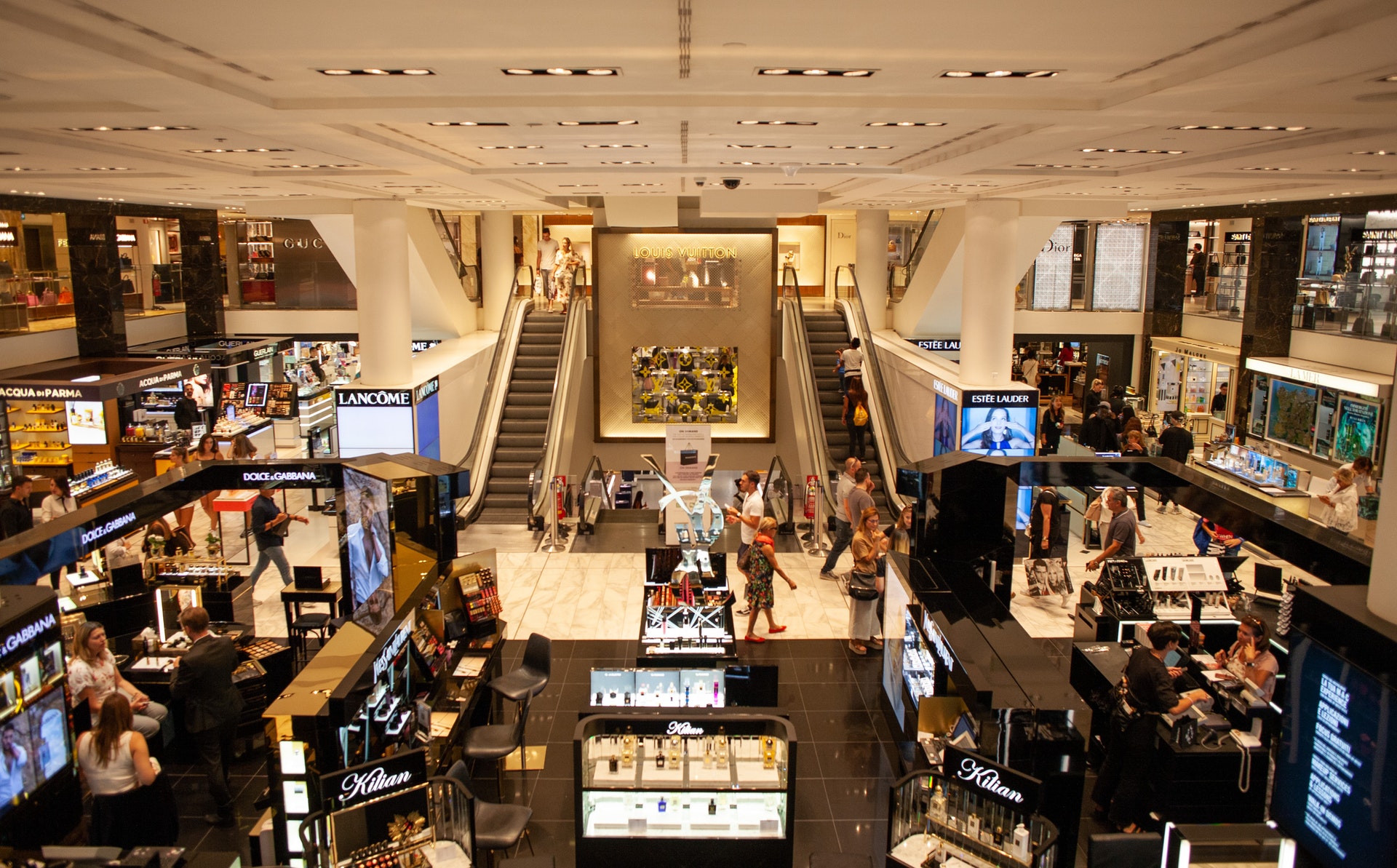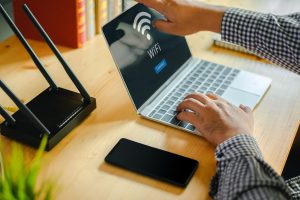The “Internet of Things” has put the retail industry operating at full tilt. The technology has become a leading game-changing tech solution for the way online grocers work. Because of the countless apps it offers, IoT Applications in Retail Industry have accelerated their growth to the next level. Under the connected IoT system, grocers can avail better opportunities, enhance customer experience, minimize costs, and drive overall growth. As per the latest statistics, the number of IoT devices is projected to reach 50 billion by the end of 2025.
In the retail sector, the inclusion of the latest technologies constantly occurs at a faster pace. This further forced physical stores to adopt those strategies to deliver better services and performance. For traditional stores, it is crucial to invest in this evolution by picking the best grocery delivery app development company. They need to rely on technology to meet the ever-changing demands of the new digital era. This is the right time to invest in trends like the Internet of Things, bringing significant differences among businesses.
Thanks to technologies like “IoT,” it is recently considered as one of the strongest pillars of retail businesses, especially those in groceries. With IoT applications in the retail industry, retailers and marketers have limitless potential to collect and provide more in-depth insights into customer response and purchasing trends. In this blog post, we will describe the areas where IoT applications exist in the retail sector.
What is the Internet of Things?
In simple words, it refers to expanding Internet connectivity among various physical devices. Another way we can say, the “Internet of Things” suggests that all of the devices we use daily will be interconnected, able to exchange data. This offers up a slew of possibilities in various industries, including transportation, healthcare, and the workplace.
How do the IoT Applications in the Retail Industry assist retailers in growing their businesses?
Retailers are increasingly using the internet of things in retail to improve customer experience, cut costs, boost growth, and improve overall performance. Let’s discuss how the IoT can help retailers grow their businesses.
Retail Smart Shelves:
It has been noticed that a significant amount of time and energy is spent in a retail business keeping track of products, i.e. confirming the availability of a product and knowing its condition. For eliminating the inconvenience of consumers, smart shelves work as smart retail IoT. In the industry, IoT technology automates product monitoring and decreases the risk of crimes.
When an IoT-enabled smart shelf detects items that are mistakenly put on or are running short, it alerts the retailer. It allows cost-effective control of inventory management. The radio-frequency identification connected to a reader makes this possible, which allows the intelligent shelves to detect in-store thefts. As a result of such an addition inside the store can help reduce the amount of money spent on hiring security staff.
Automated Checkouts In Retail:
Most of the time, the store’s checkout counters are the busiest, with customers waiting in long queues to pay their bills. IoT in the retail sector can help with this problem as well. It efficiently resolves the issue by implementing a system that can read tags on each item when customers check out the store.
The checkout system checks for the tags on the items and deducts the cost from the customer’s mobile payment app. The automated checkout system enhances the customer experience and also guarantees that they will return to the store for future purchases.
Personal Discounts:
Loyal customers can enjoy some perks in return for their purchases. They can avail unique discounts or awards on various items. Sensors help in this by offering loyalty discounts to loyal consumers when they reach specific products with their smartphones. This is one of the most acceptable methods to meet the customer’s expectations.
Top Areas Where Retailers Are Taking Significant Benefit Of Retail Apps
Proactive Maintenance to Correct Equipment
Among IoT applications in the retail industry, it is the one that helps make estimations where maintenance is needed. You can see almost every grocery shop has a lot of complicated machinery — most people are familiar with refrigerated units.
Connected Devices Means Connected Consumers
Consumers are becoming more connected, and this shift in behavior has had an immediate impact on retail. Retailers are already aware that customers would verify in-store prices and inventory levels on their smartphones. Previously, it was usual practice to send mass promotions to clients. Today, however, it is relatively simple to comprehend a client’s needs and send promotions in response. And the customer is proactive in responding to the demand.
IoT Powered Intelligent Transportation System
These solutions help avoid accidents, decrease emissions, and improve transportation efficiency. One of the goals of innovative IoT applications in the retail industry is to move items more effectively. In this regard, IoT can assist with transportation, tracking, and route optimization. We know that several shops have utilized GPS to track and route vehicles in recent years.
Adoption of Smart Stores in the Retail Sector
Previously, we had to do costly survey initiatives to determine whether shop employees were responsive to customer service needs or not. For this, there is a need to implement extensive staff training programs.
We may now employ video or Wi-Fi foot-traffic tracking in innovative stores to see if customers are loitering around a product section. Then, either direct an associate to assist that customer in real-time or analyze that information for more efficient customer visits.
Furthermore, it’s easy to modify the current in-store purchasing experience by continuously analyzing store traffic and customer demand. This allows us to use extensive digital marketing inside the store or send out mobile event notifications to customers.
Concluding Lines
With the fast expansion of online purchasing, merchants are eager to deliver a seamless consumer experience in-store whenever possible. They want the same rich data and high-performance analytics that help them fuel their websites. Also, the need is to focus on IoT applications in the retail industry that better serve customers and create value to take advantage of this new promising field.
As a result, it is critical to invest in this technology to extend its market presence and obtain better results.
Furthermore, while the Internet of Things is innovative, simply applying the technology will not be sufficient.












